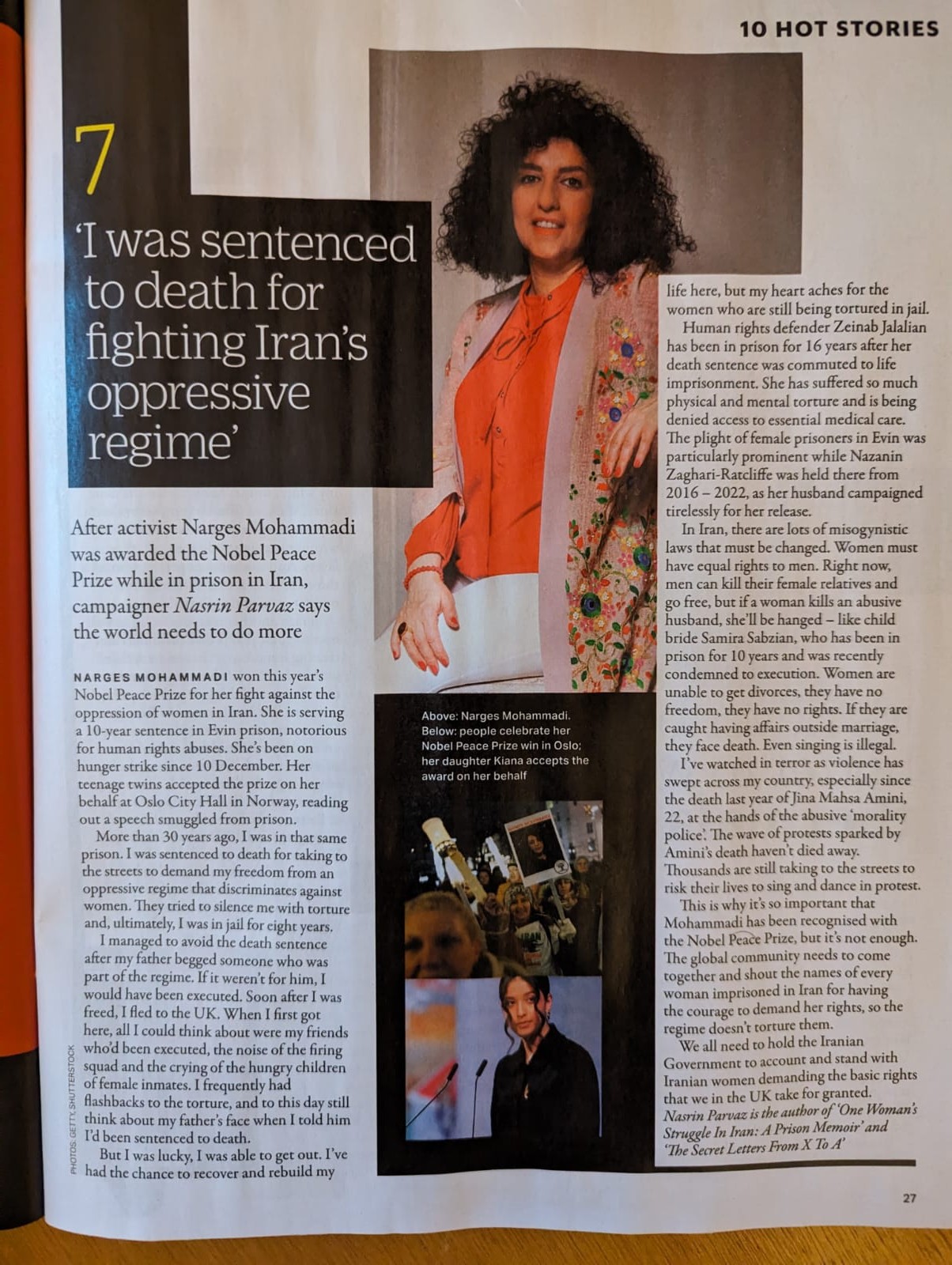In November 1982, Nasrin Parvaz planned to meet a friend and fellow activist in the Iranian capital, Tehran. She was shocked when her friend showed up at the meeting with an interrogator.
“I didn’t know he’d been arrested the day before,” Ms Parvaz, now 67 and based in Britain, told The i Paper. “He couldn’t take the torture, and named me. I was arrested.”
Ms Parvaz had been involved in demonstrations against the Iranian regime that had come to power following the revolution in 1979, bringing with it a fundamentalist and repressive interpretation of Shia Islam.
“The regime introduced misogynistic laws,” she said. “They said women had to cover their heads. Women did not have the right to divorce. Women had to have their husband’s permission to leave the country. Custody of children was the husband’s right. The law permitted men to kill their daughters and wives, and they went free.”
Ms Parvaz was taken to an interrogation centre for six months. “I was tortured because they wanted my contacts, and I wouldn’t give it to them,” she said. “My feet were lashed, so much so that I was paralysed for three weeks. The guards had to take me to the loo, and I couldn’t shower.”
She was transferred to Evin prison in Tehran, a notorious site holding thousands of prisoners, including hundreds of political dissidents, human rights activists, journalists and dual nationals. The prison, sitting on a hilltop surrounded by electrified barbed-wire fences, would become her home for most of the next seven years.
“Evin has a reputation of being a site of torture and oppression,” Nader Hashemi, director of the Alwaleed Centre for Muslim-Christian Understanding at the Edmund A Walsh School of Foreign Service, Georgetown University, told The i Paper. “Every major political dissident that has been arrested by the Islamic Republic of Iran has found themselves at Evin.”
Ms Parvaz was shown to a room meant to sleep five prisoners – instead, it housed 80 women and two children.

“I was beaten, but not like when I was at the interrogation centre,” she said. “I was put in solitary confinement, sometimes for months.”
She remembers becoming very ill in Evin with an unbearable pain in her stomach.
“I was at the point of dying,” she said. “I couldn’t eat anything and lost a dramatic amount of weight. They didn’t want to give me any treatment or medication, and said they would take me to hospital if I wrote my first confession – that I had made a mistake to struggle against the regime. I said I would not.”
